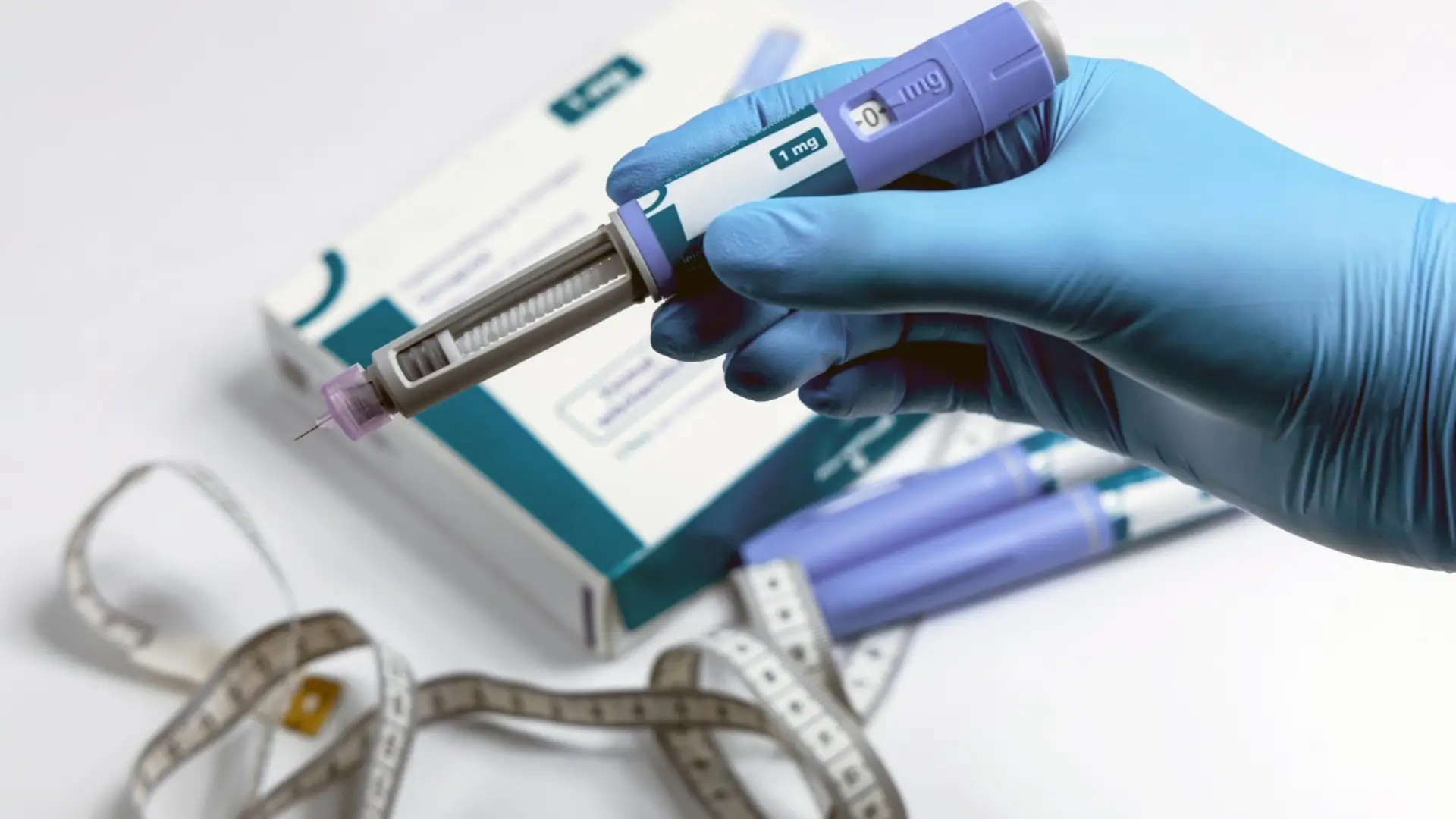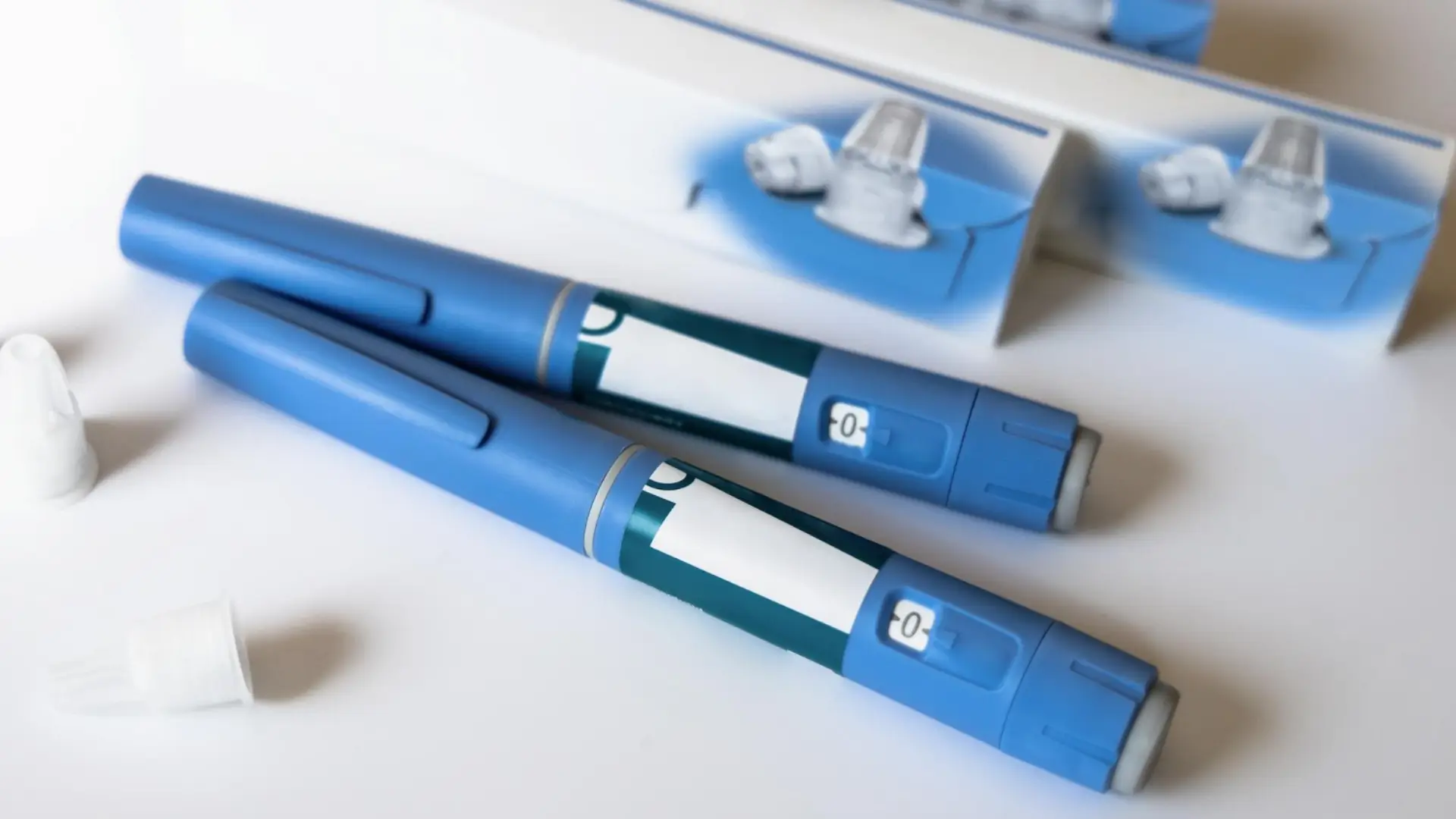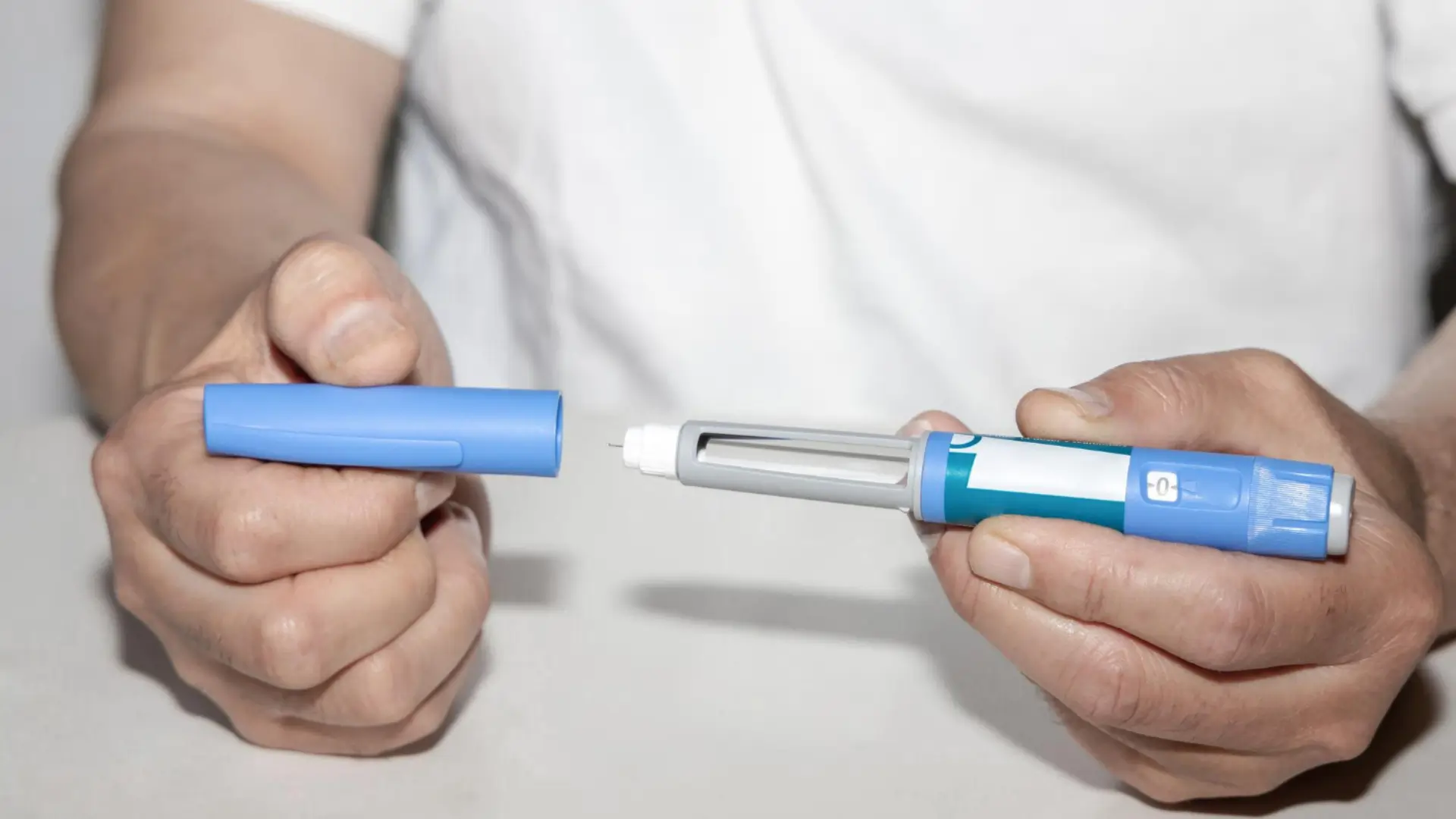In recent years, Ozempic (semaglutide) has become one of the most talked-about medications in modern healthcare. According to 2024 data, about one in eight U.S. adults has tried a GLP-1 receptor agonist like Ozempic, and millions continue using it for type 2 diabetes management or weight loss support.
As more people begin treatment, conversations around side effects and tolerability have naturally followed. While nausea, bloating, and changes in appetite are among the most recognized reactions, some users also describe feeling unusually tired — prompting questions about whether fatigue is a common or temporary effect of the medication.
In this article, we’ll explore the science behind these experiences, reviewing what clinical trials and real-world reports reveal about Ozempic-related tiredness. We’ll also look at possible biological explanations and share practical advice for both patients and healthcare professionals seeking to manage this symptom safely and effectively.
Key Takeaways on Taking Ozempic and Tiredness As Its Side Effect
- Fatigue can occur in a small percentage of Ozempic users (less than 5%), usually during the first few weeks of treatment or after a dose increase.
- Tiredness is not a common side effect listed on the official prescribing label, but some patients feel tired or experience temporary low energy as their bodies adapt.
- Possible contributors include reduced calorie intake, dehydration from gastrointestinal effects, and early metabolic changes during weight loss or glucose regulation.
- Starting with a low dosage and gradually increasing it helps the body adjust, reducing the likelihood of fatigue or other side effects.
- Most people notice improvement over time with hydration, balanced nutrition, and supportive care.
- If tiredness persists, healthcare providers can review medications, lab results, and overall health to rule out other causes such as low blood sugar or nutrient deficiencies.
- Open communication with a clinician ensures proper management, helping patients with diabetes continue Ozempic safely while maintaining their energy and well-being.
About: Medica Depot is your trusted all-in-one supplier, offering a range of high-quality medical injectables and supplies. If you’re looking to buy Ozempic, contact Medica Depot’s sales representatives, and they will guide you on how to do so. Whether for health professionals, plastic surgeons, dermatologists, licensed estheticians, or other specialists, we can offer genuine, brand-name products you may need. With Medica Depot, we prioritize serving you better to improve the patient’s quality of life.
Why Ozempic May Lead to Tiredness in Some Patients

When people describe fatigue, they often mean a general sense of tiredness, weakness, or lack of energy. While this can stem from various health conditions, some medications — including Ozempic injections — may also contribute to the issue.
When patients begin Ozempic, their body adjusts to several metabolic changes. Fatigue can occur as part of this transition, reflecting the body’s effort to balance weight, diet, and blood glucose levels. Many individuals report feeling fatigued or tired after taking Ozempic, a medication used to improve blood sugar control in adults with type 2 diabetes.
It’s common for new patients to ask, “Does Ozempic make you tired?” According to healthcare professionals, fatigue has been reported in a small percentage of patients (less than 5%), particularly during the early stages of treatment or after dose increases. Although it is not listed as a common side effect in the official prescribing information, some individuals may experience temporary tiredness as their bodies adjust to the medication.
Even though fatigue is temporary for most individuals, understanding why it occurs helps patients manage it more effectively.
Several mechanisms may explain why this happens:
- Reduced Caloric Intake: Ozempic suppresses appetite and slows gastric emptying, which can lower energy levels, especially if meal portions or nutrients drop too quickly.
- Gastrointestinal Side Effects: Symptoms like nausea, vomiting, or diarrhea can lead to mild dehydration and reduced nutrient absorption — both known contributors to fatigue.
- Early Metabolic Shifts: As the body adapts to lower glucose levels and changes in insulin activity, energy metabolism can temporarily fluctuate, leading to short-term fatigue.
Metabolic Dose Adjustment and Ozempic-Related Fatigue

Healthcare providers often emphasize the importance of starting with a low dose and increasing dose adjustment gradually when prescribing Ozempic. The typical Ozempic dosage begins at 0.25 mg once weekly for four weeks, followed by gradual increases to 0.5 mg, 1 mg, or up to 2 mg, depending on blood sugar response and tolerability. This stepwise titration minimizes side effects and helps the body adjust.
During this dose adjustment period, some patients may experience increased fatigue as their calorie intake decreases and their metabolism adjusts. Semaglutide — the active ingredient in Ozempic — activates GLP-1 receptors that regulate blood sugar, appetite, and digestion. These changes can create a temporary energy deficit, mainly when weight loss occurs rapidly or when dietary protein is insufficient.
As the body adjusts, energy levels typically stabilize. Most patients report improved tolerance after several weeks of consistent dosing. Proper rest, hydration, and a balanced diet rich in protein and complex carbohydrates can help manage fatigue and support metabolic health.
Fortunately, most patients adapt over time. Fatigue often improves within a few weeks as the body stabilizes, energy levels rebound, and gastrointestinal symptoms lessen.
Distinguishing Between Ozempic Fatigue and Other Causes
When fatigue develops during Ozempic therapy, patients may assume the medication is to blame — but other factors can also contribute. Providers need to explore additional causes, including:
- Dehydration or Volume Depletion: Gastrointestinal side effects, such as nausea or vomiting, can reduce fluid intake, lowering energy levels and increasing the risk of fatigue.
- Low Blood Sugar (Hypoglycemia): This risk can occur when Ozempic is used in combination with other drugs, such as insulin or insulin secretagogues. Glucose logs should be reviewed to rule this out.
- Delayed Gastric Emptying: Slower digestion can interfere with nutrient absorption and contribute to low energy.
- Sleep quality: Poor sleep can worsen perceived fatigue during Ozempic treatment.
When symptoms persist, medical professionals should evaluate:
- Vital Signs: Heart rate, blood pressure, and hydration status.
- Laboratory Tests: Blood glucose, kidney and thyroid function, electrolytes, and hemoglobin.
- Medication Interactions: Other drugs that may cause sedation or interact with Ozempic.
- Lifestyle Factors: Poor sleep, stress, or depression can also contribute to ongoing fatigue.
Clinicians should review these factors to determine the cause of fatigue. They should also discuss eating habits, diet, and lifestyle factors that influence energy levels and health.
Practical Management Strategies for Patients Reporting Tiredness on Ozempic

Most cases of fatigue improve with supportive care and proper dosing. Adhering to the prescribed schedule allows the body to adapt and minimizes unwanted side effects. Healthcare providers may suggest the following strategies:
- Stay hydrated: Aim for regular water intake and replenish fluids after gastrointestinal side effects.
- Eat balanced, protein-rich meals: Avoid skipping meals or fasting excessively to prevent energy dips. Maintain protein and micronutrient intake to sustain energy and prevent weight-related tiredness.
- Review other medications: Check for possible sedating effects or absorption issues caused by slower digestion. Evaluate concurrent drug use that may worsen Ozempic side effects.
- Adjust titration pace: If higher doses cause excessive fatigue, providers can slow titration or revert to a previous Ozempic dose. If tiredness persists, clinicians may delay dose increases or return to a previously tolerated level before resuming escalation.
- Track symptoms: Note when fatigue occurs — after a dose change, meal, or activity — and discuss patterns with your healthcare provider. Keep a sleep and symptom journal to help identify patterns and triggers.
If tiredness persists despite lifestyle and dose adjustment, providers may decide to temporarily reduce the dose or, in rare cases, advise patients to stop taking the medication under supervision. Careful follow-up ensures that blood sugar control remains stable while minimizing unwanted side effects.
Conclusion
While Ozempic-related fatigue is not common, some people may experience it during the first few weeks or after increasing their dose. These effects are usually temporary and can be managed with hydration, balanced nutrition, and gradual titration.
Ongoing communication with a healthcare provider is essential. Together, patients and clinicians can evaluate possible causes, adjust the treatment plan if needed, and ensure safe continuation of therapy. By understanding how Ozempic affects metabolism and energy balance, patients can stay informed and feel more confident throughout their treatment journey.
FAQs
1. Does Ozempic cause fatigue?
Ozempic fatigue has been reported in a small percentage of users (less than 5%), often during early treatment or after dose increases. While it’s not a common side effect, some people feel tired temporarily as their bodies adjust.
2. Why might patients feel tired on Ozempic?
Reduced calorie intake, dehydration from gastrointestinal symptoms, or early metabolic changes can contribute to tiredness. Most cases improve over time as the body adapts.
3. What should patients do if they experience fatigue while on Ozempic?
Speak with your healthcare provider. They can review your symptoms, check for dehydration or low blood sugar, and adjust your treatment plan or dosing schedule if necessary.
References
Montero A, Sparks G, Presiado M, Hamel L. KFF Health Tracking Poll May 2024: The Public’s Use and Views of GLP-1 Drugs | KFF. KFF. Published May 10, 2024. Accessed October 6, 2025. https://www.kff.org/health-costs/kff-health-tracking-poll-may-2024-the-publics-use-and-views-of-glp-1-drugs/
Novo Nordisk Inc. Ozempic (Semaglutide Inejction) | HIGHLIGHTS of PRESCRIBING INFORMATION. novo nordisk Accessed October 6, 2025. https://www.novo-pi.com/ozempic.pdf









